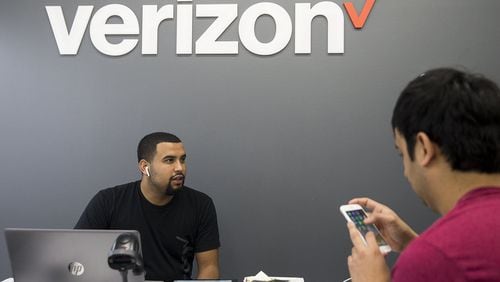Atlanta will likely be the second market in the nation for Verizon Wireless to launch its commercial high speed 5G network.
Last year Verizon announced Sacramento, California as the first market where the company would launch the new technology, with the commercial launch set for mid 2018. Both cities were among 11 markets chosen by the company to conduct pilot tests of the technology last year.
The company obtained an experimental test license from the FCC to test the 28GHz millimeter wave in the two cities early this year. The tests are to be conducted in Midtown between March to September.
The new technology is expected to provide customers with an array of services including "broadband, mobile and IoT (Internet of things) — and the necessary bandwidth and (speed) for 3D and virtual reality applications."
Humayun Zafar, an Associate Professor of Cybersecurity at Kennesaw State University said if chosen, customers operating in the city will access quicker broadband services on top of the city getting a headstart in the creation of cities that use technology to increase operational efficiences.
According to Verizon, the new technology will deploy "radio signals, rather than copper or fiber cables, to provide customers with unprecedented wireless speeds for Internet access."
Industry experts say utilizing radio signals is economic compared to fiber and copper, which have to be set with underground cables.
Zafar said the use of higher frequency band will enable users access information faster with less delays.
“A mili second or two delay can count,” he said, especially in critical services such as information security.
Despite the advancements and conveniences attributed to 5G, implementation of the new technology will take a while and require new market place adjustments.
Zafar said the use of high frequency bands will reduce the coverage offered by cellphone towers, resulting in users dropping calls. He said the new technology will therefore place a demand for increased investment in additional towers to provide adequate coverage for users. There are currently over 200,000 cellphone towers in the nation.
“There is no point of moving to a faster network when calls are being dropped on a constant basis, its inconvenient,” said Zafar.
Customers will also eventually have to purchase new phones that support 5G. There are currently no devices in the market that support the technology and it may take a couple of years for phone companies to enable their gadgets to support the technology.
“Its such a monumental change that impacts everyone, the suppliers, vendors and consumers. That’s why it may take a year or two to actually gather steam, “said Zafar.
For consumers, the new technology could also result to added data costs due to faster connectivity.
“Something as simple as a consumer’s data plan will probably be pricier,” he added.
According to the company, the new technology is expected to service 30 million households in the country.
Details on the proposed 5G testing
Verizon has chosen Sacramento, California as its first market.
The initial plan by the company was to test the 5G in 11 markets nationwide, among them Atlanta. Other markets included Ann Arbor, Bernardsville (NJ), Brockton (MA), Dallas, Denver, Houston, Miami, Sacramento, Seattle and Washington, D.C
5G is aimed at increasing network speeds for customers.
SOURCE:Verizon wireless press statements
About the Author






